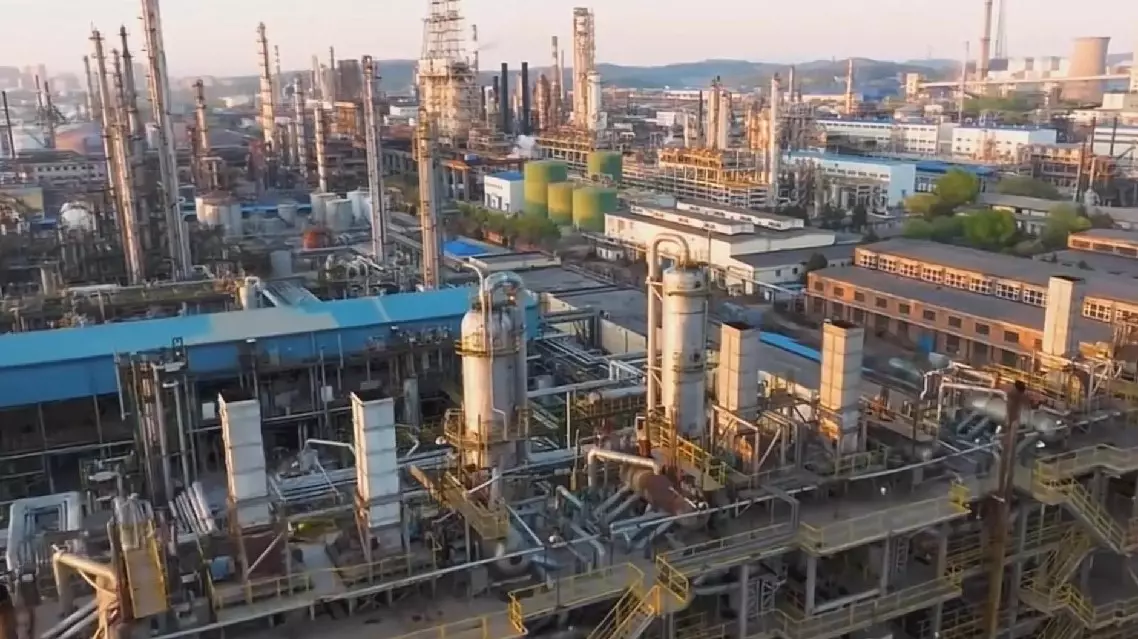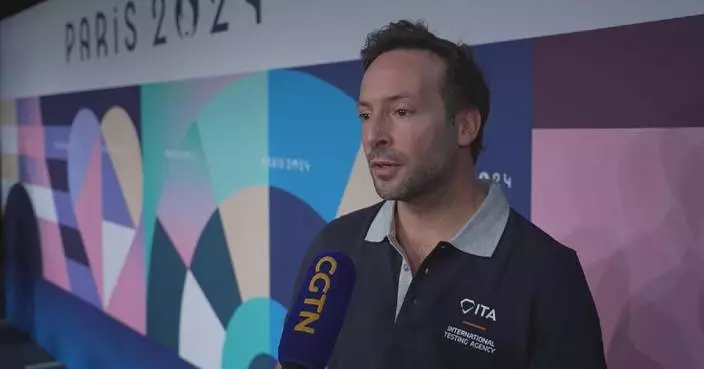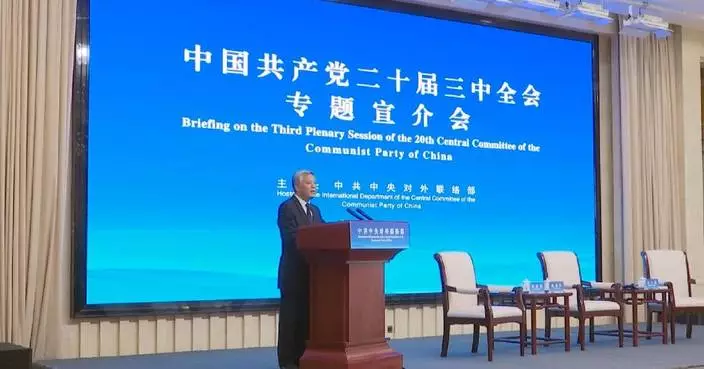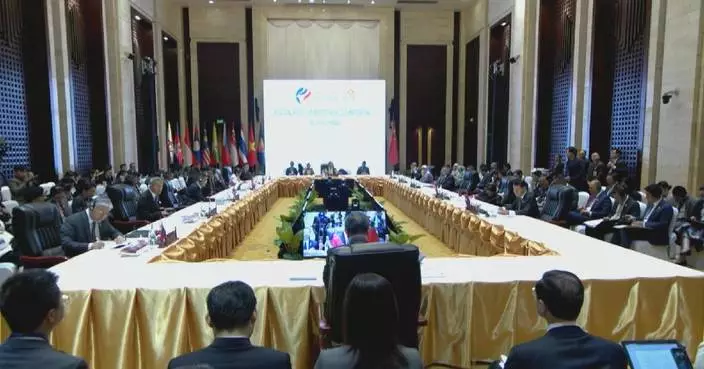The oil refining technologies and equipment developed by companies in northeast China's Liaoning Province have helped the country improve its energy self-sufficiency rate and safeguard national energy security.
The processing plant of China National Petroleum Corporation (CNPC) Fushun Petrochemical Company in northeast China's Liaoning Province is one of the oldest oil refineries in the country, and some of its equipment couldn't stand the test of time.
Fed with oil from China's Daqing field and Russia's Siberia, its traditional products include paraffin, solvent oil and ethylene. The new upgraded equipment bring a new line of business - jet fuel.
"A lot of equipment was replaced by domestically-made ones, like hydrotreaters and deaerators. The purity of aviation fuel is of vital importance. It means better engine performance and lower wear and tear costs. We are confident about the potential of this new business division due to the post-pandemic air travel recovery," said Lu Chuantao, deputy manager of the company's refinery No. 3.
With a few inefficient, polluting, less valuable capacities still in place, the oil refining industry needs to upgrade and restructure for a healthier and greener development.
Refineries convert crude oil into petroleum products for use as fuels for transportation, heating, paving roads, and as feedstock for making chemicals. In the processes, hydrocrackers are particularly valuable in terms of maximizing production and reducing residual fuel oil.
In late April, the largest hydrocracker reactor ever manufactured in the world was completed by China First Heavy Industries Group. The handover of the 3,000-ton iron giant – the equivalent of 100 Boeing 737 – has broken many world records for forging, welding and delivery.
With a length exceeding 70 meters, and a wall thickness of 320 millimeters, welding engineer Zhu Lin and his team have performed a consistent, precise, and reliable weld throughout the entire operation.
"The reactor consists of three tubes, with each weighing over 1,000 tons. So, two welding teams have to carry out the work simultaneously. Every step and technique has to be identical as the three tubes are heated and rotated at exactly equal speeds – like a set of twins. Also, both teams have to ensure the detection and rectification of flaws before they become critical," said Zhu.
In simple terms, the hydrocracking unit upgrades low-quality, heavy gas oils into high-quality, clean-burning jet fuel, diesel, and gasoline.
China's refining sector has been expanding at an accelerated pace for years to meet rapidly growing domestic demand. Due to the size of the new reactor, it is capable of processing large amounts of distillates to obtain kerosene, naphtha and gasoline, thereby improving the efficiency for refinery operations.
For decades, China has relied heavily on foreign technologies to build the more sophisticated processing units needed to convert the country's heavy crude oils into a wide range of petrochemical products. The domestically built 3,000-ton hydrocracker reactor helps double down efforts to reduce such reliance.
"Hydrocracking reactor design is a proprietary technology with each licensor having his own specific design based on operating experience, catalyst technology and engineering expertise. In addition, each reactor's design is somewhat unique in the refining industry due to a combination of process requirements. The project has broken the longtime foreign monopoly on the manufacturing of high-end refinery equipment," said Zhang Lin, deputy chief engineer at China First Heavy Industries Group (Dalian).
China is becoming increasingly self-sufficient in energy supplies thanks to rising domestic oil and gas production in recent years. However, with more than 70 percent of its crude oil feedstock from overseas, experts say that refinery efficiency has played an integral role in the country's quest for energy security.

China-made petrochemical machines change energy dynamics









